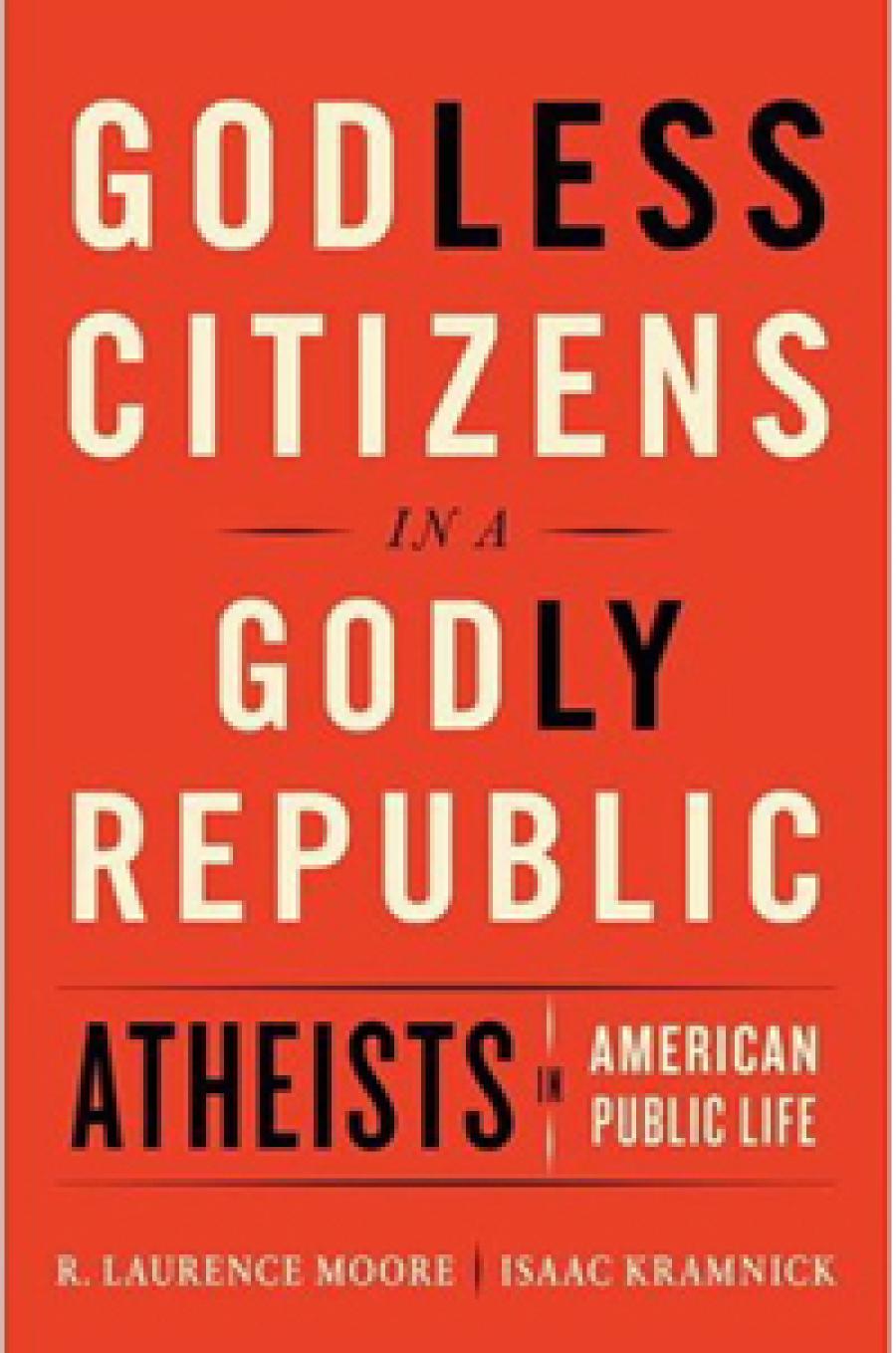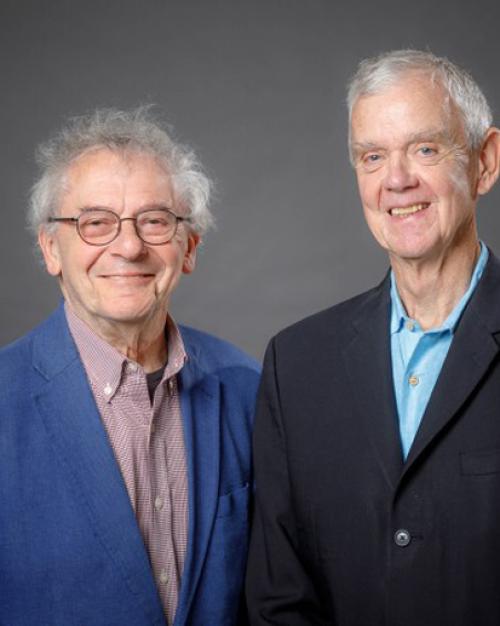Did America’s founders intend it as “one nation under God”? Does the First Amendment’s guarantee of freedom of religion extend to freedom from religion?
In a new book, “Godless Citizens in a Godly Republic,” Professors Emeriti Isaac Kramnick and R. Laurence Moore explore these questions and atheism in America from historical and legal perspectives. The book appeared atop a list of new and notable titles in The New York Times Book Review of Sept. 2.
“The Pledge of Allegiance was changed in 1954 to distinguish the United States as a godly country, from what Americans considered then the godless, atheistic Soviet Union,” Kramnick, the Richard J. Schwartz Professor of Government Emeritus, said in a recent interview.
“One of the themes of this book is that nonbelievers have been very important in American life, and don’t get recognized,” said Moore, the Howard A. Newman Professor of American Studies and History Emeritus.
Kramnick and Moore have been colleagues and good friends since they both left Yale University to teach at Cornell in 1972. The two have collaborated on several projects including co-authoring “The Godless Constitution: A Moral Defense of the Secular State,” published in 1996 and updated with a new chapter in 2001.
Their new book “doesn’t overlap the first book, but we think of it as a companion volume,” Moore said. “I had been working some on the concept of religious freedom, that there were ways in which it was becoming a claim of privilege.”
Another motivation for the book was studies in the past few years indicating that “those with no religious belief are the fastest-growing segment of the population,” Moore said. “Atheism is the strongest form of that, and historically, it was despised in early American history.”
Nonbelievers – not just atheists but those who question the Bible or a church – have, since the country’s founding, often been criticized, dismissed as second-class citizens and stigmatized.
Like many of the Founding Fathers, Thomas Paine was a deist. He claimed an individual belief in God and not in any church, and was among the many Americans who faced criticism for that belief. In Paine’s time, the anti-Federalist critics of the Constitution invented the phrase “the godless Constitution,” Kramnick noted, “because God is never mentioned in the document.”
He added, “Jefferson hoped that the state would not interfere with people’s religious belief or lack thereof.”
The 19th-century Republican politician Robert Ingersoll, an agnostic, was considered unelectable. Felix Adler, a founder of the Ethical Culture movement, was accused of being an atheist for his views on religion when he was a Cornell professor in the 1870s.
“Godless Citizens” looks at laws and legal cases throughout American history addressing the exercise of religious belief, attacks on secularism by religious conservatives and fundamentalists, and the growth since 2000 in atheist activism and organizations that support the nation’s original secular principles.
“I’ve spent most of my academic life writing about American religious movements,” Moore said. “We’ve seen the decline of the Protestant faith and the emergence of a different kind of Catholicism and a fundamentalism that is seriously anti-intellectual.”
A recent case explored in the book is Burwell v. Hobby Lobby Stores Inc., in which the Supreme Court in 2014 upheld a corporate employer’s opposition, on religious grounds, to providing contraceptives for female employees, which had been legally mandated under the Patient Protection and Affordable Care Act of 2010.
“In the last chapter, we are concerned that religious freedom is becoming a way to discriminate,” Moore said of that case.
“We do not think of this as an anti-religious book,” the co-authors noted. “It is simply an interpretation of what we think religious freedom is all about.”
This story also appeared in the Cornell Chronicle.





